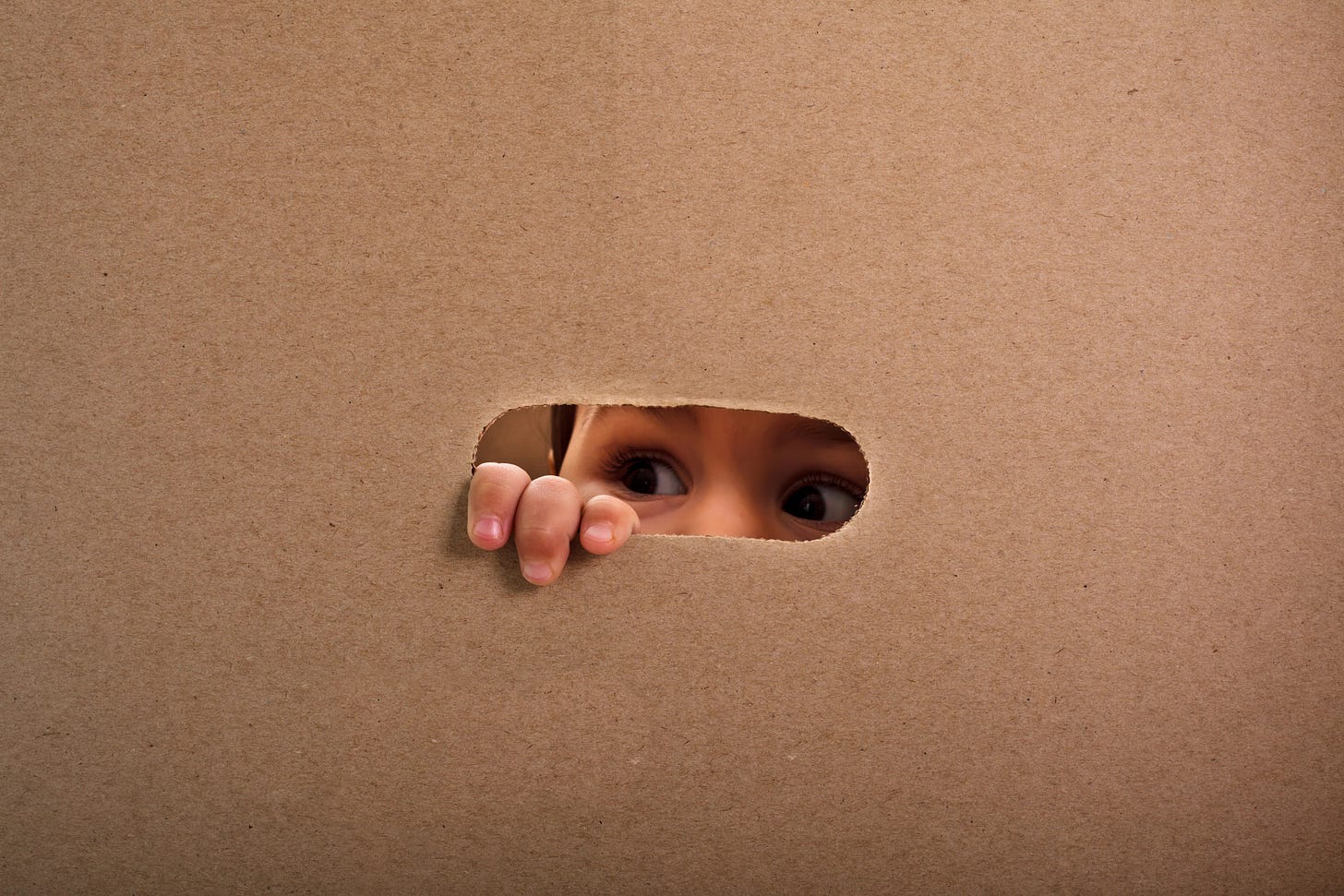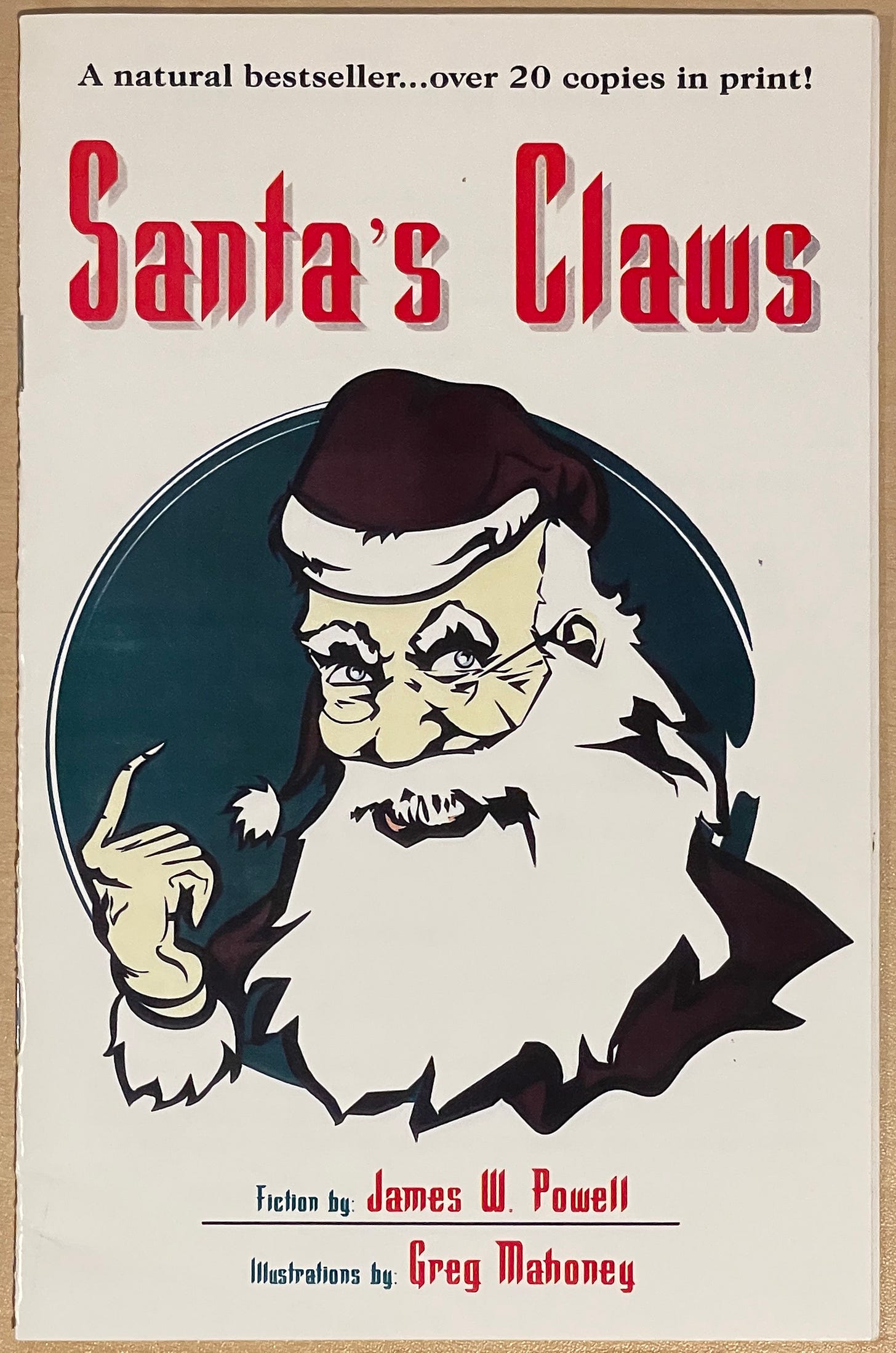Stop Hiding: Reveal Your True Self as a Writer
Why Self-Concealment Stifles Creativity and How to Combat It

Five years ago, I finally decided to confront my feelings of not being good enough. Since then, I’ve practiced taming self-doubt and befriending imposter syndrome, perfectionism, and all the other names we use to hide the real culprit: fear.
Perhaps my most enlightening discovery is how frequently I’ve hidden myself from others. I was shocked to realize how rarely I shared my true self with friends and family.
In many relationships, it was as if I didn’t exist at all.
For you, reading a post from someone who calls himself The Fiction Coach, it’s probably obvious: this James guy loves all things storytelling.
But in my real life? Very few people know any of it. And if they do, they certainly don’t know how much it matters to me.
When I quit my corporate writing job to edit fiction full-time, only three of my coworkers even knew I had written a comic published by Dark Horse.
My IRL friends? They think it’s a hobby. At least, the ones who know me well enough to know I write at all.
So why do I hide that part of myself? Because the message I’ve received most often is that my art, my dreams, and my interests don’t matter.
Here’s an example: After college, I moved to Utah, where I was a reporter for a small newspaper. I didn’t have much money, so I decided to print a short Christmas horror story I had written. I even had it illustrated.
I printed twenty copies. I was really proud of it, and I was so excited to give it as a gift. When I gave it to my mom, she looked at the cover and said, “That’s nice.” Then she set it on top of the stack of greeting cards she planned to toss out. My brothers and sisters didn’t react much better.
It was like that with other friends, too. No one seemed interested in my weekly news articles or the magazines that published my stories.
That trend continued throughout my life. Even recently, when I quit my job without a safety net—perhaps the biggest decision of my life—no one seemed interested.
I showed up to a happy hour that next day and exclaimed, “I quit today.”
The first thing my friend said was, “Oh yeah? I’m thinking about applying for a new job.” And like that, everyone started talking about him.
Years later, I still haven’t talked about my new career with most of my IRL friends. The last time I brought it up, one friend immediately said, “I used to know a woman who wrote a fantasy novel.” We never got around to talking about my business.
Sure, I can chalk it up to friends who are terrible listeners. And yes, I realize that’s how some people try to relate.
But over time, I took hundreds of similar interactions and learned that it’s easier to just hide the important parts of me. And after hiding for long enough, I subconsciously found more reasons to keep hiding.
Why it Matters
Okay, why am I telling you any of this?
Because writing and storytelling is my life. It’s what’s driven me since I was a kid. It’s what keeps me up at night. It’s what fuels me every day.
And if I had to guess, there’s a fire inside you, too.
The whole point of The Fiction Coach and my editing business is to help writers find their way. To be the mentor I wish I had when I was younger.
And if there’s a chance you’re hiding a part of yourself, I want to show you how I learned to overcome it.
In psychology, this behavior is referred to as "self-concealment." It’s when you hide your true thoughts, feelings, and personal achievements from others. To self-conceal, you might downplay your successes, avoid discussing your interests, or allow others to dominate conversations.
This might not sound like a big deal if it’s done in only a few relationships. But for me, I hid the important parts of myself from almost everyone.
Even fellow creators.
Why risk sharing something important if they’ll just ignore me? They’ll just say I’m doing it wrong anyway. Better to not bring it up at all.
This whole hiding yourself thing? It sucks. That’s no way to live. It’s impacted my life in far deeper ways than I thought possible.
From a writing standpoint, this whole self-concealing thing is detrimental in a number of ways:
Stifled Creativity — By hiding your thoughts and emotions, you learn to limit your creative expression, and you might fail to produce authentic, impactful work.
Increased Stress and Anxiety — Constantly hiding your true self affects both personal well-being and writing productivity.
Lower Self-Esteem — You might start to doubt your abilities and worth, leading to a negative feedback loop that undermines confidence.
Missed Opportunities — By not sharing your authentic voice, you might miss opportunities for recognition, collaboration, and growth.
Writer’s Block — For me, writer’s block has always been about perfectionism. My next story had to be perfect. Since my friends didn’t seem to care about the things I did, I needed to write the perfect story. That’ll get them to finally care! And as you know, no idea is perfect, so I’d analyze it to death and never get started.
Decreased Personal Fulfillment — Writing is a form of self-expression. Concealing that part of you can lead to dissatisfaction and a lack of joy in the writing process. And if it’s no fun, why bother?
I don’t suggest you play “what if” with your life, but imagine where you’d be if you had a mentor guiding you through the process. Or a friend who knew the true you and pushed you to be better while also celebrating your wins?
What’s Helped Me
Now that I understand how frequently I’ve hidden myself from others, I’ve taken steps to get better.
It hasn’t been easy. Spending years putting others first and being the listener makes it hard to finally open up about myself.
I made an effort to share more with my extended family the other night, and after only a few minutes, I felt like I was hogging the spotlight. As if I were being selfish with our time together.
My instinct is usually to wrap it up quickly and talk about someone else. But I’ve kept at it, and over time, not only do I feel like a weight has been lifted off my back, but I’m also more confident in my writing and editing.
And as an added bonus, knowing I’m heard and loved makes me want to listen even more. By sharing myself, I’m forming stronger bonds with others.
If any of this sounds like you and you’re ready to make changes, here’s what’s helped me:
Self-Reflection and Awareness — Spend time reflecting on your true values, interests, and feelings. Just realizing what’s important to you and what you tend to hide from others is a huge step worth celebrating.
Gradual Disclosure — Start by sharing small, less intimate details with trusted friends. Slowly build up to more personal disclosures as your comfort level increases.
Develop Self-Compassion — Treat yourself with the same kindness and understanding you’d offer a friend. Recognize and celebrate your accomplishments and unique qualities.
Engage in Activities that Foster Authenticity — Join groups or communities that share your interests and values. But don’t just join. Actively share your thoughts, needs, and opinions.
Challenge Negative Beliefs — Identify and challenge beliefs that contribute to self-concealment, such as fear of judgment or rejection. Replace them with positive affirmations.
Build Supportive Relationships — Surround yourself with people who accept and encourage your authentic self. Gradually distance yourself from those who contribute to your self-concealment.
Practice Vulnerability — Share your thoughts and feelings, even when it’s a little uncomfortable. Vulnerability can lead to deeper, more meaningful connections.
Also, remember that overcoming self-concealment is a gradual process. I’m still practicing and often have to get myself primed before talking with friends. Otherwise, I risk shriveling again.
So yeah, patience and a little self-compassion play key roles in all of this.
But trust me, the effort you put into it will be worth it.
You deserve it.
Does any of this resonate with you? What’s helped you overcome fear and doubt to share more of yourself with others? I’d love to hear about it in the comments.




Really needed this today too. Thanks, James.
This one hit home. Definitely resonated a lot with me as I've had very similar feelings. I often minimize what I do, whether it's in my day job or in comics, but I've tried to own that a bit more and have some pride in my work. One example of that is sharing comics work on LinkedIn. It's a weird connection, blending the day job stuff with the comics stuff, but it's been a way for me to be my natural self in an environment where I wasn't always doing so. It also served as an excellent ice breaker for a lot of conversations because there were some folks who were genuinely interested (and even backed my Kickstarter campaigns!) Thanks for sharing this, James!